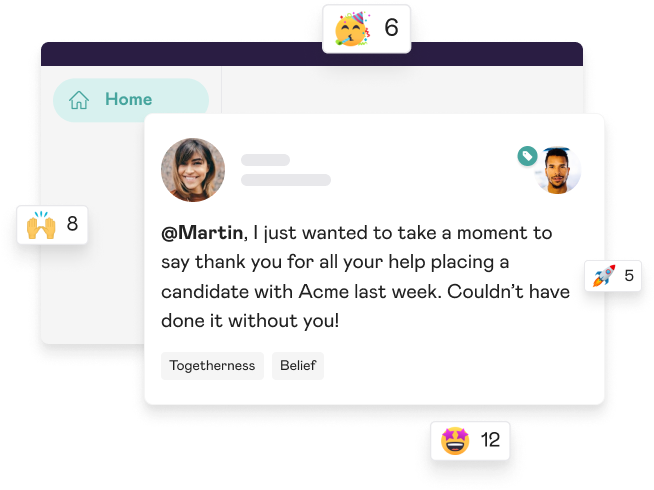There’s nothing worse than knowing that your employees aren’t fulfilling their full potential. When your employees are underperforming, it can greatly impact your organisation’s goals.
It’s no secret that the last few years have been turbulent. This uncertainty may have impacted employee performance and could only be coming to light now.
A study from AdviserPlus found that throughout 2021, performance management issues increased, with UK employers opening up 44% more capability cases and 38% more cases around work quality in the second half of the year.
It’s apparent that now is the perfect time for you to start making some positive changes.
Why work to improve employee performance
One or two underperforming employees can drag a whole team down, making hard workers feel resentful or dispirited. That’s why it’s best to tackle the problem as soon as possible.
Too often, underperformance issues go unaddressed. Never allow underperformance to fester in your team because it’s rare that these issues will ever resolve on their own. They will just get worse.
The good news is that when you take proactive steps to improve motivation and get to the root of performance issues, there’s a good chance you’ll get everyone back on track.
What is employee underperformance?
Underperformance is when your employees aren’t fulfilling their role at work as well as you expected. It could mean missing deadlines, not participating in meetings, or failing to hit their targets.
If an employee isn’t doing a job well or even bothering to do it, they are underperforming. It can also mean behaving in a way that’s not suitable for the workplace or bringing a negative attitude to the team.
What causes employees to underperform?
There are many reasons an employee might be underperforming, from personal to professional. To start addressing the issue, you first need to look around and see if there is a pattern of underperformance.
Suppose you only see a few isolated issues. The chances are it could be due to something in the employee’s personal life or being unclear about their role and expectations in the organisation.
On the other hand, if you’re seeing a significant number of employees struggling to perform as well as expected, you’re likely having issues around connectivity, motivation and clear career progression.
One useful way to find out where the root of the problem lies is to conduct an employee engagement survey and get some insight into how your employees feel.
How to manage underperforming employees
We have developed some handy techniques for improving performance if you struggle to manage your underperforming employees.
Lay out expectations clearly
There is always a possibility that your employee doesn’t completely understand what their responsibilities are. This can be disheartening for anyone, as the employee gets the sense they are failing at their job without knowing how to fix it.
Pride or fear may stop them from bringing it up, so one of the first things you should do is draw up and share a detailed explanation of what you need from them.
Establish or reaffirm open communication
To help poorly performing employees get back on top, you need to address the reason behind their lacklustre performance. And to get to the bottom of that, it’s essential to foster an open line of communication between you and them.
If an employee can trust that you have their best interests at heart and the good of the organisation, they are much more likely to open up to you and share their concerns.
Offer support and compassion for personal issues
Personal life struggles will inevitably surface in the workplace at some stage. We are only human!
Many things can sap energy, from problems at home to global pandemics or war, and lead to poor performance. Knowing how to support your team through challenging times can make a huge difference.
Improve your employee recognition program
Who doesn’t like to feel as though their hard work is being recognised?
Not only can regular rewards and recognition help high performers reach new heights, but they can also encourage poor performers to make improvements.
Sharing successes and shouting about wins can be a massive factor in improving motivation, and our employee recognition platform makes it wonderfully easy to big up your team every day.
Check your onboarding process
Onboarding is crucial for settling employees into a role and setting them up for success.
Suppose you’re noticing a decline in performance once onboarding is over. There’s a chance that your process isn’t in-depth or supportive enough, leaving employees floundering and less able to hit your expectations.
A strong process or good onboarding software could be all you need to see an improvement.
Assess the resources and opportunities you’re offering
If you want an employee to continue to grow and perform well over time with you, you must display strong leadership.
It may be that they feel they need more check-ins to ensure they’re able to meet the goals set for them, or you need to invest in more training or resources to help them thrive.
Find ways to alleviate stress
Stress can greatly impact an employee’s wellbeing, and when mental health suffers, so does performance.
We all know that a little bit of stress is normal and can even be positive, but there is a tipping point where it can quickly become detrimental. Working in ways to help employees manage stress can help improve performance too.
Look at their career trajectory
Sometimes, employees start to underperform when they can’t see a clear path for themselves. Opportunities for career progression allow people to plan and see how hard work could pay off in the future.
When employees feel trapped or as though they will be stuck at the same level forever, it can drain their willingness to invest in the day-to-day.
Create a culture of peer-to-peer support
Sometimes, the most effective way to help an employee who seems to have lost the will to perform well is to work on team building. An organisation that feels connected, with good peer-to-peer recognition opportunities and support, is more likely to leave employees more motivated to help the whole team thrive.
Encourage employees to pick each other up through our Boosts and see how high-performance habits naturally begin to form.
Transform your culture with Mo

- Improve employee engagement scores
- Reduce employee churn
- Build a collaborative culture
Mo is an employee recognition and engagement platform that can help leaders improve collaboration and morale, reduce employee churn and drive change.
Our platform creates a vibrant culture by developing team habits, encouraging people to celebrate success, recognise results and appreciate colleagues.
Your complete toolkit for connecting and motivating teams in the new world of work. Book a demo with our team today!




